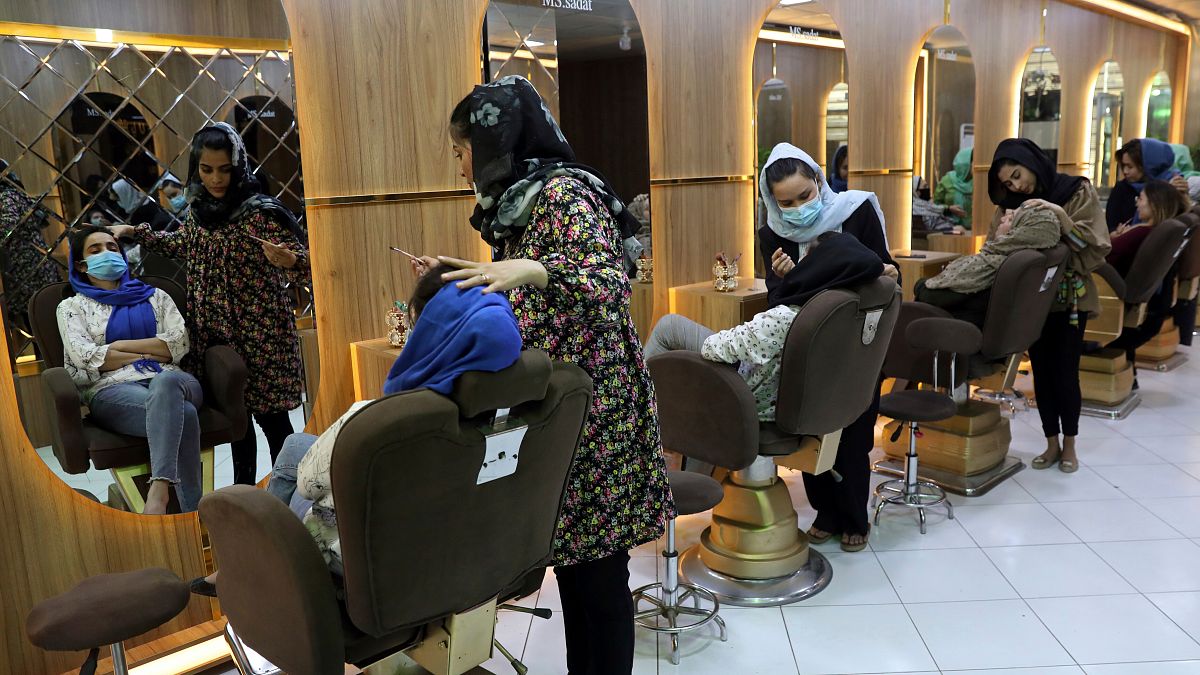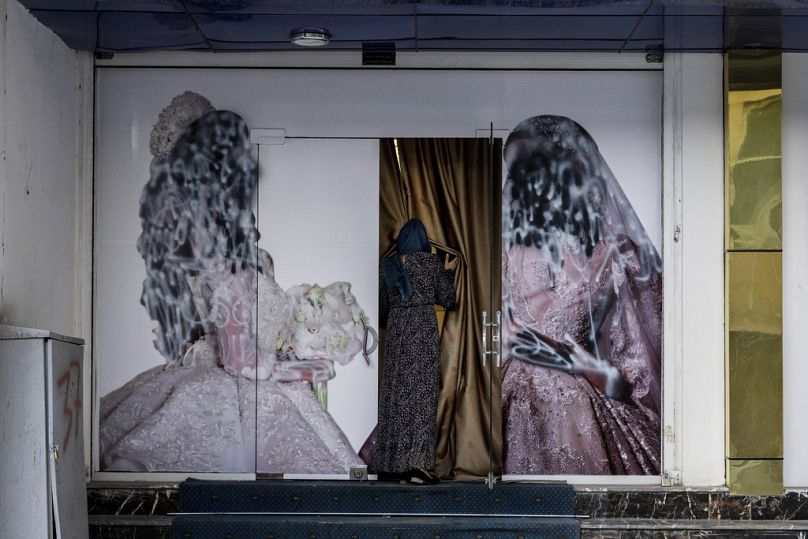'All my dreams have been destroyed by the order of the Taliban,' said one hairdresser.
Since the Taliban swept back to power in Afghanistan in 2021, the draconian restrictions on women that made it infamous before it was overthrown have returned with a vengeance.
Women and girls may no longer participate in formal education above the age of 12 and, after two decades of serving the state, they are now barred from public sector and judicial jobs.
Added to this oppressive list are newly-introduced restrictions on travelling long distances alone, plus a compulsory strict dress code in public.
Along with these broad-brush measures, the Taliban is also targeting specific areas of life. Among its latest attention-grabbing moves is an order to shut down all beauty salons across the country.
Issued by the Ministry for the Propagation of Virtue and Prevention of Vice, the ban will come into effect on 27 July. According to the government, salons provide services forbidden by its ultra-strict interpretation of Islamic religious law.
They also supposedly put undue strain on the families of grooms before weddings, since it is they who customarily pay for brides' pre-wedding visits, officials added.
Euronews Persian went to the city of Mazar-e-Sharif, at the centre of Afghanistan's Balkh province, to speak to people at the sharp end of these changes.
Cut off
Hairdresser Marzieh Rezaei had big plans for her business before the new law.
"The decree issued by the Taliban is very disappointing for us. Since I was a child, I dreamed of having a big beauty salon and becoming a very professional hairdresser, but all my dreams have been destroyed by the order of the Taliban," she told Euronews Persian.
"With the closure of beauty salons, economic problems will arise for us and our family. We will be completely disappointed."
Beauty salon manager Tahereh Mohammadi described how the Taliban's restrictions have not only curtailed her plans for the future, but put her family's finances at risk.
"I have 18 years of work experience," she explained. "I started from a small hair salon and gradually established this big salon, I was planning to open a bigger beauty salon.
"My husband is unemployed, and I am responsible for all living expenses and even providing for my children's education expenses."
A similar story was told by Bereshana Yaqoubi, a hairdresser whose income is vital for her household.
"I have been working in this profession for two years after my internship," she said, and now I earn 1,000 to 1,500 afghanis (about €10-15) a day.
"My father has died, and I have to help my family financially."
Isolation
Stories like these are part of a broader fact of life in Taliban-ruled Afghanistan: Even with the economy faltering and standards of living plunging, women are still being excluded from the public realm and private sector.
Many are being robbed of the chance to work, leaving their families with one fewer breadwinner in dire times.
This only worsens the human rights issues presented by the Taliban's views on gender and its embedding of them in the law.
According to women's rights activist Moneseh Mubarez, the fact that the government is able to continue down its restrictive path is an indictment not just of the Taliban itself, but of the international community.
"From the point of view of international laws, human rights values and even from the point of view of Sharia, it is an unforgivable crime," she said of the regime's practices. "The Taliban increases these restrictions against women every day due to political interests.
"Unfortunately, the world has remained silent."

